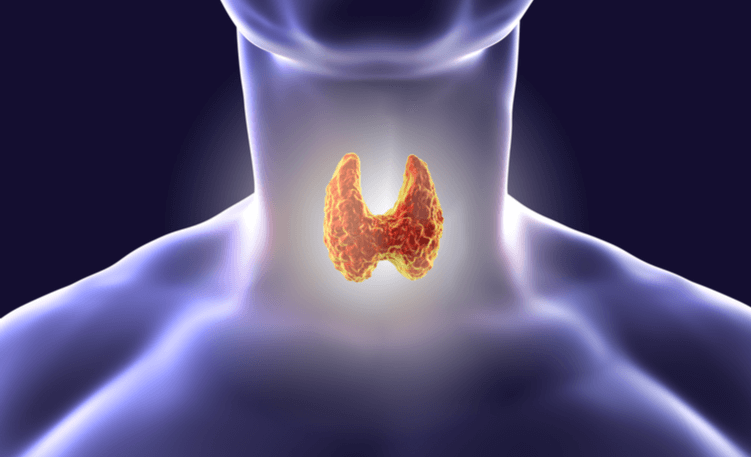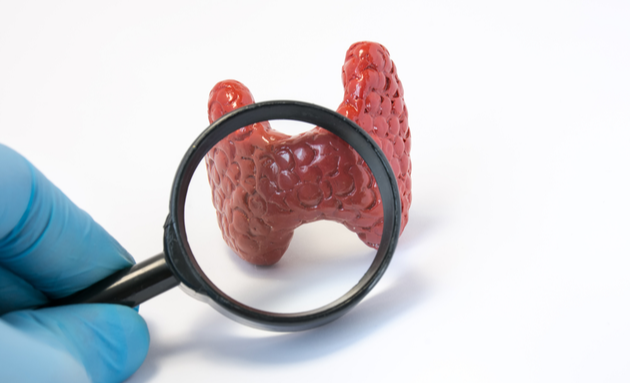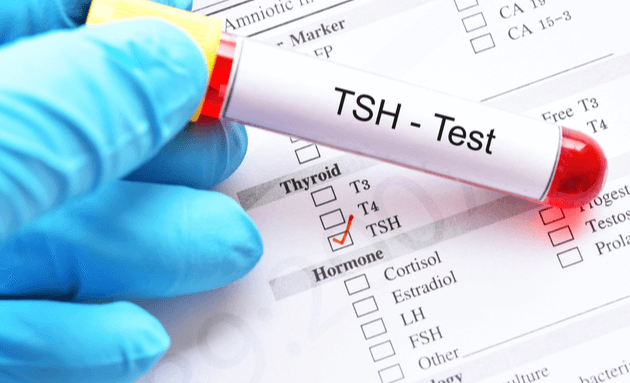A Woman's Guide To Thyroid Health

The thyroid gland is located in the front of the neck in both men and women. It is a butterfly-shaped gland whose primary function is to produce the hormones triiodothyronine (T3) and thyroxine (T4), both of which travel through the body and help regulate metabolism. These hormones also aid in brain development, muscle control, digestive function, and mood enhancement.
When the thyroid gland produces too little or too much of these hormones it leads to disorders such as hypothyroidism and hyperthyroidism. Thyroid disorders can affect both men and women. However, thyroid imbalances are ten times more common in women than in men. The reason for this could be linked to the interaction between thyroid hormones and female reproductive hormones such as estrogen and progesterone.
What causes Thyroid Dysfunction?
Thyroid dysfunction, in most cases, is caused by the overproduction or underproduction of thyroid hormones. Besides these, it could also be caused by Hashimoto’s disease and Graves' disease, both of which are autoimmune disorders that cause the body’s own immune system to attack the thyroid gland.
In the case of Hashimoto’s disease, the damaged thyroid gland initially overproduces hormones and subsequently stops producing hormones altogether, causing hypothyroidism. While in the case of Graves’ Disease, the thyroid gland release high levels of thyroid hormones, causing hyperthyroidism.
In certain cases, hypothyroidism may also result from a problem with the pituitary gland. This gland is responsible for producing TSH or thyroid-stimulating hormone that tells the thyroid to do its job. Other causes of hypothyroidism include temporary inflammation of the thyroid or medications that affect thyroid function.
Who is at Risk?
A family history of thyroid dysfunction puts you at higher risk of developing a thyroid disorder. Thyroid disorders are known to affect pregnant women, and women who may be experiencing perimenopause and menopause. The disorder can also be triggered during times of intense emotional, physical, and mental stress. In India, hypothyroidism generally impacts women between 46-54 years of age.

Symptoms of Thyroid Dysfunction
Let’s take a look at how thyroid dysfunction can affect the body.
- Weight loss or gain: When the body overproduces thyroid hormones, it can cause unexpected weight loss. An underproduction, on the other hand, can cause weight gain. Women are more prone to developing hypothyroidism.
- Changes in heart rate: Thyroid hormones travel through the body and impact close to every organ in the body. When your body overproduces them, it can lead your heart to beat excessively fast, cause high blood pressure, heart palpitations or a pounding sensation in the heart. An underproduction of thyroid hormones can cause the heart rate to slow down abnormally.
- Changes in mood or energy: Since your thyroid regulates metabolism, a deficiency in thyroid hormone levels can leave you feeling tired, lethargic, and even depressed. Overproduction, on the other hand, can cause problems with sleep and leave you feeling anxious, irritable, or restless.
- Feeling too cold or too hot: Thyroid hormones help regulate body temperature. Underproduction of thyroid hormones can thus leave you feeling more cold than usual. An overproduction has the opposite effect with individuals sweating excessively.
- Swelling in the neck: The thyroid can become enlarged or swollen when damaged, causing visible swelling in the neck. This is also known as goitre and can occur when your thyroid is damaged or inflamed during hyperthyroidism, hypothyroidism, thyroid cancer or when you have lumps in your thyroid. Keep in mind, swelling in the neck can also be caused by ailments other than thyroid dysfunction.
- Issues with the reproductive system: Thyroid dysfunction can lead to infertility, endometriosis, polycystic ovary syndrome (PCOS), uterine fibroids, low libido, irregular menstrual periods, and difficulties during menopause.
- Other general symptoms: An overactive or underactive thyroid can cause hair loss. Hypothyroidism can further cause dry skin, brittle nails, constipation, and tingling in the hands. Hyperthyroidism can cause vision problems, diarrhea, muscle weakness or trembling hands.
When left untreated, hypothyroidism can raise cholesterol levels and subsequently increase your risk of heart disease and stroke. In rare cases, it can cause loss of consciousness and dangerously low body temperatures. Hyperthyroidism can also cause serious heart problems and put you at risk of brittle bones.

Diagnosing a Thyroid Disorder
If your doctor suspects a thyroid disorder, he will generally prescribe a thyroid function test to check your thyroid levels. This test is made up of a series of blood tests that measure the level of TSH or thyroid stimulating hormone, triiodothyronine (T3) and thyroxine (T4) in your blood. If your TSH levels are high, it could mean that you have an underactive thyroid. If your TSH levels are too low, on the other hand, it could be indicative of an overactive thyroid. Imaging studies or biopsies may also be used to evaluate a thyroid abnormality.
Treating a Thyroid Disorder
Treatment will differ depending on what condition you have. Hypothyroidism is generally treated with the help of pills that restore your thyroid hormone levels and thereby fix symptoms. Most people will need to take these pills for the rest of their lives.
Hyperthyroidism can be treated in two ways. In the first case, patients are given antithyroid medication to lower the production of thyroid hormones. Int he second, the thyroid gland in patients is destroyed with the help of radioactive iodine or is surgically removed. Patients are then given thyroid hormones through pills. Doctors recommend surgery only if antithyroid medication doesn’t work, if the goitre (swelling) is very large, or if patients have thyroid nodules.
Symptoms of thyroid dysfunction can initially be confused for those of other ailments. Going to a doctor to get your symptoms checked is crucial. Further, eating a nutritious whole foods diet, with iodised salt, lean meats, legumes, nuts, fresh fruits, and vegetables is advised.


